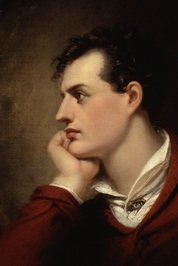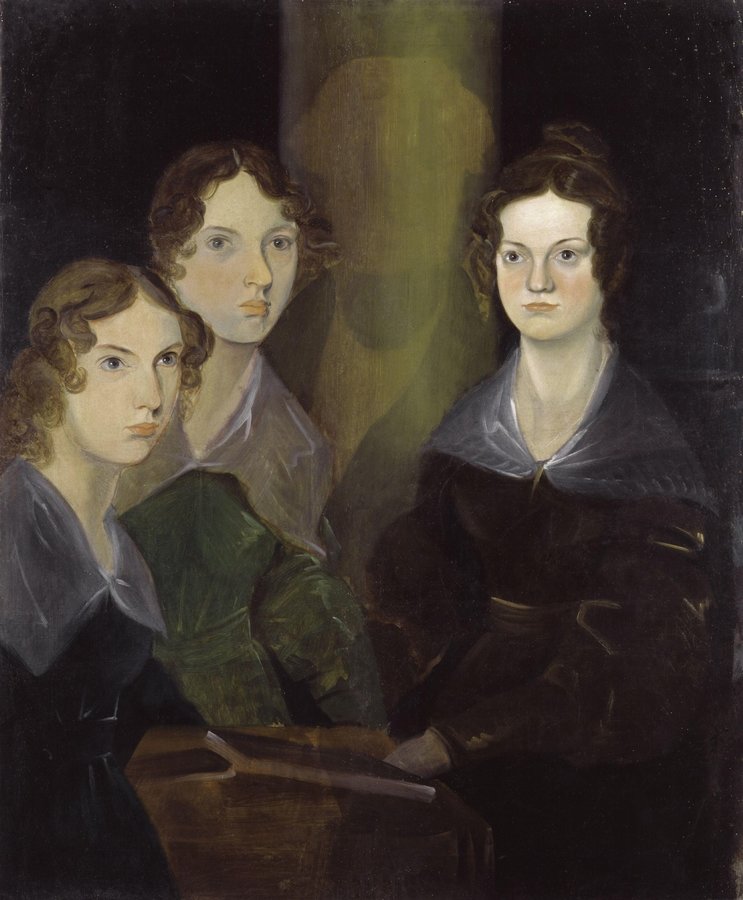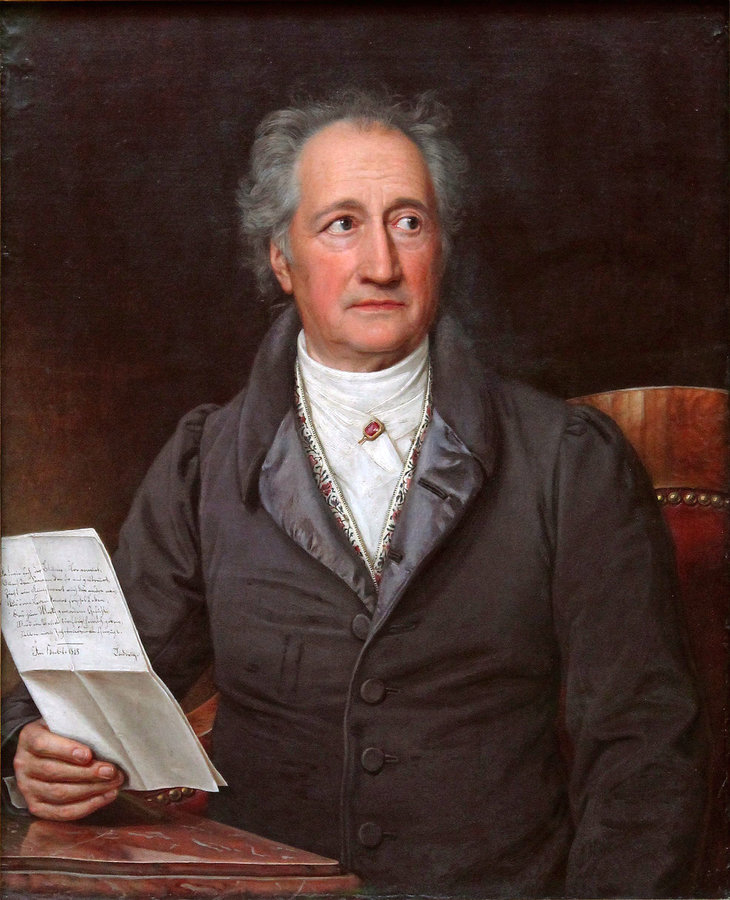The Romantic Era


Antiquity
The Renaissance
Enlightenment
Realism
Modernism
Post-modernism
Medieval times
You can view history as a linear thing,
a TIME LINE.
The Romantic era
Cause - Effect
Thesis - Antithetis - Synthesis
The conqueror writes the history.

You can also think of time as a pendulum,
that swings between ideas, ideals and identities.
Keep in mind:
The Enlightenment preceded the era in the early 1700s
"The era of reason"

The seeds planted by the Enlightenment
led to scientific and technological
advances, but also to ideas about
rationalism and reason.
The enlightenment is
concerned with the brain and its faculties!
Reason, intellect, deduction!


But the pendulum swings...
The term romanticism comes from the old french word romanz, meaning prose or folktale. The term is also the origin of the swedish word roman.

The Reading Maiden - Otto Scholderer
Let's play a game!
I consider myself to be a romantic person.
Yes!
No!
Where is the most romantic place to be?


Which of these symbols is more romantic?


Wich of these paintings gives the most accurate view of the romantic era?




Wich of these are more typical romantic?


This is our modern take on romanticism
But it would be foreign for the people who lived during the Romantic era.



Longing
Passion
Desire
Extacy
Horror
Terror
Rage
Madness
Anguish




The Romantic era
The romantic era was not only a cultural influence that led to artistic and literary renewal but also a change in spiritual life.
People of the romantic era were strictly religous and scientists started to see traces of "God" in nature and every living thing. This changed the idea of an abstract, passive deity in heaven to a more present and active
one in everyday life.
Deism Pantheism


Friheten på barrikaderna - Delacroix 1830
American revolution (1775-1783)
French revolution (1789-1799)
Wars and Revolutions
At first the English were sympathetic to the democratic ideals and the ideas of "liberty, equality and fraternity”.
But many turned conservative after the bloody "purges" of aristocrats.



Industrialism
Changed the world and the lives of people completely!
Industrialism led to big Changes for
how our society is structured.




Slums

Beer street and gin Alley - Hogarth
Great Britain
The romantic era in Great Britain started when authors started to experiment with their own sensory perceptions, for instance, through alcohol and drug use.
The era was dominated above all by poetry.
A Sharp break with the focus
on common sense and reason of the previous era.
Poetry allowed poets to freely express their emotions.
Imagination, Inspiration and individualism were key mottos of the poets of this era.
Great Britain

1772-1834
"In Xanadu did Kubla Kahn
a stately pleasure dome erect..."
Samuel Taylor Coleridge wrote his Epic poem Kubla Kahn while in an opium haze.
Escapism

1772-1834
"The Lake Poets"
- Samuel Taylor Coleridge "The Rime of the Ancient Mariner"


1770-1850
1774-1843
- Robert Southey "The Story of the Three Bears"
- William Wordsworth "The Prelude"
Anti-industrialism and technology
Pro-nature and the simple life
Great Britain
Other famous poets during the Romantic era
- William Blake – The Marriage of Heaven and Hell
- George Gordon, Lord Byron – Don Juan
- Percy Bysshe Shelley – Prometheus Unbound, "Adonaïs", "Ode to the West Wind", "Ozymandias"
- John Keats – Great Odes, "Hyperion", "Endymion"
An interest in history particularly the Middle ages.
Also Hellenism and then especially the love of Beauty.
Infant Joy
I have no name
I am but two days old.—
What shall I call thee?
I happy am
Joy is my name,—
Sweet joy befall thee!
Pretty joy!
Sweet joy but two days old,
Sweet joy I call thee;
Thou dost smile.
I sing the while
Sweet joy befall thee.

William Blake
1757-1827
Individualism

Lord Byron - "Mad, bad and dangerous to know"
Childe Harold's pilgrimage 1812-1818
1788-1824

- Lady Lamb
Individualism, bordering on egotism.

Anne, Emily and Charlotte Brontë
They all wrote under male pseudonyms using the surname "Bell"
Charlotte wrote "Jane Eyre"
as Currer Bell
Emily wrote "Wuthering heights"
as Ellis Bell
Anne wrote "The tenant at Wildfell hall"
as Acton Bell
The Brontë sisters
1820-1849 1818-1848 1816-1855
Wuthering heights - Thug notes



All our modern genres stem from the Romantic era: Science fiction, horror, detective novels, biographies, paranormal, fantasy.
The Romantic era continues to influence our modern Culture in many ways!
"Feuilletones"
Jules Verne - "Twenty thousand Leagues under the sea"

Robert Burns 1759 - 1796
"Auld Lang Syne"


Walter Scott 1771 - 1832
"Ivanhoe", "Rob Roy",
"The Lady of the Lake"



Iron Maiden - The rime of the ancient mariner
The Castle of Otranto
"The first gothic novel" 1764


Horace Walpole
1717-1797
A love of the strange and the exotic, mystery and the supernatural = gothicism
Bram Stoker 1847 - 1912
"Dracula"

"A tale of dark romanticism"
Epistolary novel
U.S.A.

Edgar Allen Poe
1809-1849
The Gothic movement combines horror, fiction, Death and often times romance. Many North American authors wrote books that are considered gothic horror classics.

Washington Irving
1783 - 1859
Gothic horror feeds on a pleasing state of fear something we in Swedish might call "mysrysare".
"Once upon a midnight dreary, while I pondered, weak and weary,
Over many a quaint and curious volume of forgotten lore—
While I nodded, nearly napping, suddenly there came a tapping,
As of some one gently rapping, rapping at my chamber door.
“’Tis some visitor,” I muttered, “tapping at my chamber door
Only this and nothing more.”
National romanticism

Wanderer above the sea of fog - Friedrich 1818
Nature vs.
the ugly industrialized towns
Folklore
Authors started collecting works that were typical for their region.
Idea of the superiority of their own region, language, customs and religion.
Eventually this leads to nationalism.
A Rainy summer....1816
Villa Diodati, Genève

"The year without a summer"

Lord Byron, Dr. Polidori, The Shelleys, Claire Clairmont.

Mary Wollstonecraft Shelley
1797 - 1851

Frankenstein - 1818
And Austen - A Rara Avis

Jane Austen

1775-1817
Although Austen produced most of her works during the span of the Romantic era her style differs from the typical elements of the time. She is in a class of her own.
The period which she depicted is known as the "Regency period".
Sense and sensibility 1811
Pride and prejudice 1813
Mansfield Park 1814
Emma 1815
Northanger Abbey 1818
Persuasion 1818
The settings of her books are often in Britain's high society and one of her overarching themes is class.
The plots often concern themselves with how family life was during this time, especially with regards to intrigue, gossip and match making.
Austen had insight into how
life was for the lower gentry.


The Romantic era was all about escapism, strong emotions and exploration of the spiritual and exotic.
Literary genres such as fantasy, science fiction and horror comes from this period.
Nationalism as a movement began to grow.
An idea of freedom from oppression led to revolutions and war.
The romantic era ended in the middle of 1800's and was followed by Realism and Naturalism.
I
N
C
O
N
C
L
U
S
I
O
N


Transcendentalism - U.S.A.
A philosophical, spiritual movement that had as its main idea that people and nature are inherently good.
"Transcendentalists are strong believers in the power of the individual. It focuses primarily on personal freedom. Their beliefs are closely linked with those of the Romantics but differ by an attempt to embrace or, at least, to not oppose the empiricism of science."
- Wikipedia

Ralph Waldo Emerson
1803-1882

Henry David Thoreau
1817-1862
Walt Whitman
1819-1892

Leaves of grass
"What I assume
You shall assume
for every atom
belonging to me
as good belongs to you!"
Sturm und drang
Storm and longing

Germany
The Sorrows of Young Werther
Could rightly be called the first "Bestseller"
it was sold in millions of copies around Europe.
Goethe had to rewrite the ending and make the suicide less spectacular because of the alarming trend of young men killing themselves after reading the book.
Johann Wolfgang von Goethe


The sorrows of Young Werther
1774
1749-1832
The Brothers Grimm
Jacob (1785-1863) Wilhelm (1786-1859)


"Disneyfication" removes the stories from their gruesome original versions.
The Grimm Brothers' collected the spoken stories of ordinary people thus perserving them for the future.

Alexandre Dumas "père"

Dumas was another french author whose most notable works are The Three Musketeers and The Count of Monte Cristo

Extra Points
if you can name
all the musketeers!
What was their motto!?
1802 - 1870
1844
France in the Romantic era
Due to the Napoleonic wars France entered the Romantic era later than other countries. The breakthrough author was Victor Hugo and his most famous works included Les Miserables, The Hunchback of Notre-dame as well as poetry and dramatic plays.


1802 - 1885
1831
Romantic Era
By besskirsi
Romantic Era
- 2,540



